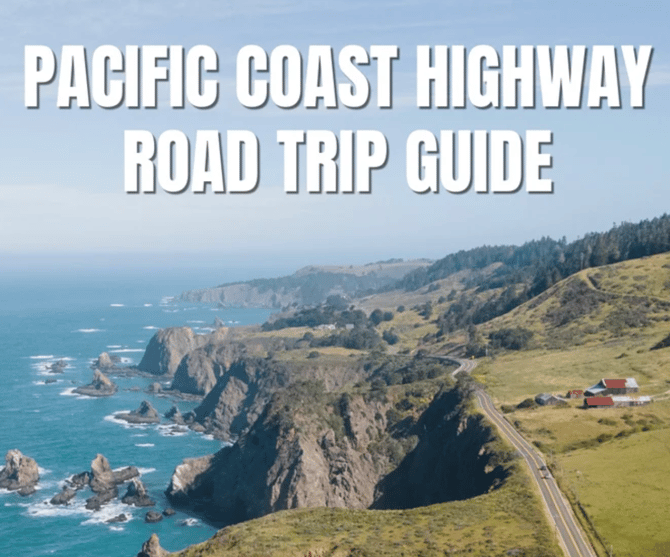The allure of the open road combined with breathtaking ocean panoramas creates one of life’s most memorable travel experiences. A southern coastal drive offers travelers an ever-changing canvas of crashing waves, dramatic cliffs, and serene beaches—natural wonders that have inspired road trippers for generations. Whether you’re planning a long weekend getaway or a midweek escape, here’s your guide to making the most of this iconic journey.
Planning Your Route: Heading South Along the Coast
The beauty of coastal highways is their accessibility from multiple starting points. Depending on your location, consider these renowned routes:
Pacific Coast Highway (California): Starting from San Francisco and heading south through Big Sur toward San Diego offers arguably America’s most famous ocean drive. The winding roads of Highway 1 present dramatic cliff-side vistas that epitomize the California dream.
Oregon Coast Highway (US 101): Though technically heading north would offer the ocean-side views, the southern journey from Portland toward the California border delivers magnificent coastal scenery with fewer crowds.
Gulf Coast (Texas to Florida): Traveling east from Corpus Christi through the beaches of Louisiana, Mississippi, Alabama, and into Florida’s Emerald Coast provides a different but equally captivating ocean experience.
Atlantic Coast (Carolinas to Florida): The southern journey from the Outer Banks through Charleston, Savannah, and down to Miami offers cultural richness alongside stunning coastal views.
Timing: The Ideal 3-5 Day Window
A proper coastal drive deserves time—rushing through these scenic routes defeats their purpose. Here’s how to structure your journey:
3-Day Itinerary
- Day 1: Begin early, focusing on covering distance with strategic photo stops.
- Day 2: Slower pace with extended exploration of a specific coastal area or town.
- Day 3: Final stretch with time for one last memorable beach sunset before heading home.
5-Day Itinerary
- Day 1: Leisurely departure with numerous viewpoint stops.
- Day 2-3: In-depth exploration of coastal towns, potential side hiking trails, and beach time.
- Day 4: Continue southward with dedicated time for wildlife watching or water activities.
- Day 5: Final leg with unhurried pace, perhaps deviating slightly inland before returning home.
Essential Stops For Ocean-Side Views
Regardless of your chosen route, certain types of locations promise the most spectacular ocean vistas:
Elevated Viewpoints: Seek out designated scenic overlooks, often marked on travel maps and well-signed. These typically offer the most dramatic panoramic views.
Lighthouse Points: These historic structures are strategically placed along coastlines and generally provide exceptional ocean perspectives.
State and National Park Coastal Sections: Protected areas often feature well-maintained trails leading to pristine, less-crowded viewing spots.
Coastal Towns: Small seaside communities frequently offer charming piers, boardwalks, or harbor views that provide a different perspective on the ocean.
Seasonal Considerations and Road Closures
Perhaps the most critical aspect of planning your coastal drive is understanding how seasons affect both the journey and destination:
Winter (December-February)
- Pacific Coast: Potential for dramatic storm viewing but frequent road closures along Highway 1, particularly near Big Sur. Always check Caltrans for current closures.
- Gulf Coast: Mild temperatures ideal for driving, but hurricane damage repairs may affect some routes.
- Atlantic Southeast: Comfortable temperatures but occasional nor’easters can temporarily close coastal routes.
Spring (March-May)
- Pacific Coast: Wildflowers bloom along coastal routes, but lingering winter damage may still affect some sections.
- Gulf & Atlantic Coast: Ideal driving conditions before summer humidity, though spring break crowds can impact certain areas.
Summer (June-August)
- All Coasts: Peak tourism season means traffic congestion, especially on weekends.
- Pacific Coast: Morning fog often obscures views until midday.
- Gulf & Atlantic: Hurricane season begins; monitor weather forecasts closely.
Fall (September-November)
- Pacific Coast: Often considered the ideal season with clear skies and fewer tourists.
- Gulf & Atlantic: Hurricane season peaks; have contingency plans and monitor weather closely.
Essential Tips For Your Ocean-View Drive
Check Road Status Before Departing: Highway department websites and apps provide real-time closure information.
Make Accommodations Flexible: Consider booking refundable stays or keeping options open, particularly in seasons prone to closures.
Fuel Up Regularly: Some coastal stretches have limited service stations.
Download Offline Maps: Cell service can be spotty along remote coastal sections.
Pack Layers: Ocean microclimates can shift dramatically within short distances.
Start Early: Morning light often provides the most stunning ocean views before afternoon haze develops.
Plan For Sunset Viewing: Research prime sunset locations each day of your journey.
Hidden Gems Worth The Detour
While major viewpoints draw crowds, consider these less-heralded stops:
Local Maritime Museums: Often located in coastal towns, these provide historical context for your journey.
Working Harbors: Early morning visits let you witness the authentic coastal lifestyle as fishing boats return with their catch.
Coastal Art Galleries: Local artists frequently capture ocean perspectives you might miss.
Wildlife Viewing Areas: Research seasonal migration patterns for potential whale, bird, or seal sightings.
Final Thoughts
A southern coastal drive represents more than mere transportation—it’s an immersion into the rhythmic relationship between land and sea. By allowing 3-5 days and remaining flexible with seasonal conditions, you transform a simple road trip into a collection of indelible memories framed by the boundless blue horizon. The ocean views you’ll encounter justify every mile, every turn, and every moment spent planning your journey.
Always remember: the true spirit of coastal driving isn’t reaching your destination quickly, but savoring the ever-changing seascape unfolding beside you. Drive safely, stop often, and let the ocean work its timeless magic.
